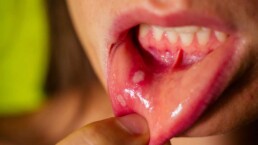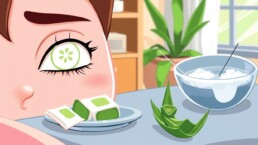Kidney stones are a common health issue that can cause a lot of pain. These hard deposits form from minerals and salts in your kidneys. They can move through your urinary tract, leading to severe symptoms. Knowing what causes kidney stones is key to managing and preventing them.
Table of Contents
ToggleYour diet, being overweight, certain health conditions, and some medicines can lead to kidney stones. Being dehydrated, eating too much sodium, and having the wrong balance of calcium and oxalate in your urine can also trigger these stones. Knowing what might cause stones and your own risk factors can help you prevent them.
Key Takeaways
- Kidney stones are hard deposits formed from minerals and salts in the kidneys.
- Diet, excess weight, medical conditions, and certain medications can contribute to kidney stone formation.
- Dehydration, high sodium intake, and imbalanced calcium and oxalate levels are common triggers.
- Identifying your personal risk factors is crucial for managing and preventing kidney stones.
- Maintaining a healthy lifestyle and addressing any underlying conditions can help reduce your risk.
Understanding the Urinary System
The urinary system is key to your overall health. It removes waste and extra fluids from your body. Let’s look at the female and male urinary systems closely.
Female Urinary System
The female system has kidneys, ureters, bladder, and urethra. The kidneys filter waste and extra fluid from blood, making urine. Urine then goes through the ureters to the bladder, where it waits to be released.
The urethra is the last part of the system, where urine leaves the body.
Male Urinary System
The male system is similar to the female one but has an extra part, the prostate gland. The prostate gland adds fluid to the sperm. The kidneys, ureters, bladder, and urethra work the same way in both systems.
Both men and women rely on their urinary system to keep their bodies healthy. Knowing how it works helps us take care of it better.
What are Kidney Stones?
Kidney stones are hard deposits made of minerals and salts. They form inside your kidneys. These stones can be anywhere in your urinary tract, from the kidneys to the bladder. They happen when the urine becomes too concentrated, letting minerals crystallize and stick together.
Kidney stones come in different sizes, shapes, and types. Some are tiny, like a grain of sand, while others can be as big as a golf ball. They can be smooth, rough, or jagged. They’re made of minerals like calcium, uric acid, and cystine.
Knowing about kidney stones helps in finding out why they happen and how to prevent them. By learning about kidney stones, you can understand this common and often painful issue better.
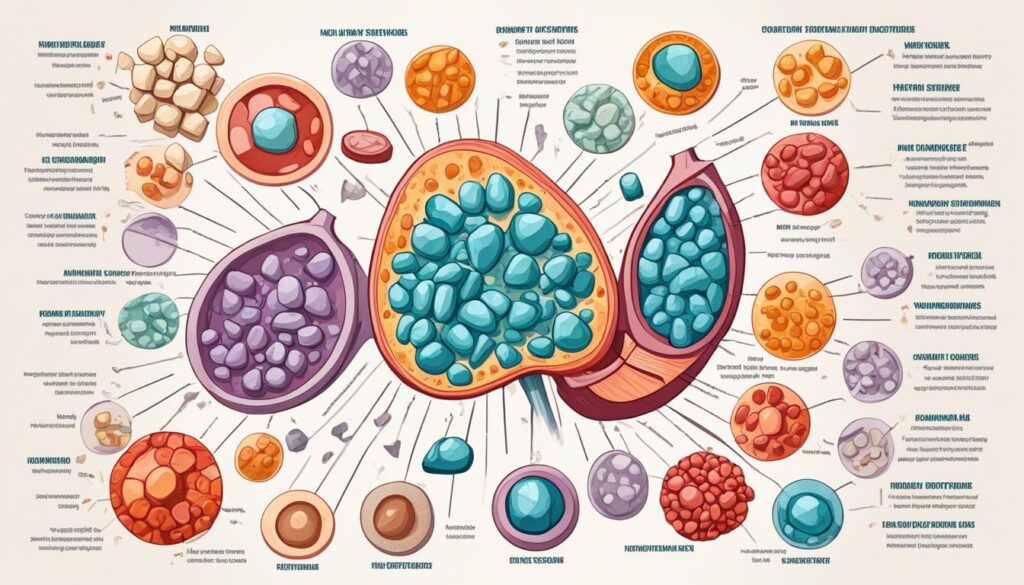
Kidney stones are a common health problem, affecting millions every year. They can cause a lot of pain and discomfort. If not treated, they can lead to serious problems. By understanding kidney stones, you can lower your risk and manage them better.
Symptoms of Kidney Stones
Kidney stones can cause mild to severe pain. The signs of kidney stones start when the stones move in the kidney or into the ureters. These are tubes that connect the kidneys to the bladder.
Signs and Symptoms
Common kidney stones symptoms include:
- Severe, sharp pain in the side and back, often radiating to the lower abdomen and groin
- Pain that comes in waves, as the stones move through the urinary tract
- Pain or burning sensation during urination
- Pink, red, or brown urine, which may indicate the presence of blood
- Cloudy or foul-smelling urine
- Persistent need to urinate
- Nausea and vomiting
- Fever and chills, which may indicate an infection
When to See a Doctor
If you have severe pain, nausea/vomiting, fever/chills, or difficulty passing urine, see a doctor right away. These signs could mean a serious issue that needs quick action. Your doctor can figure out what’s wrong and give you the right treatment.
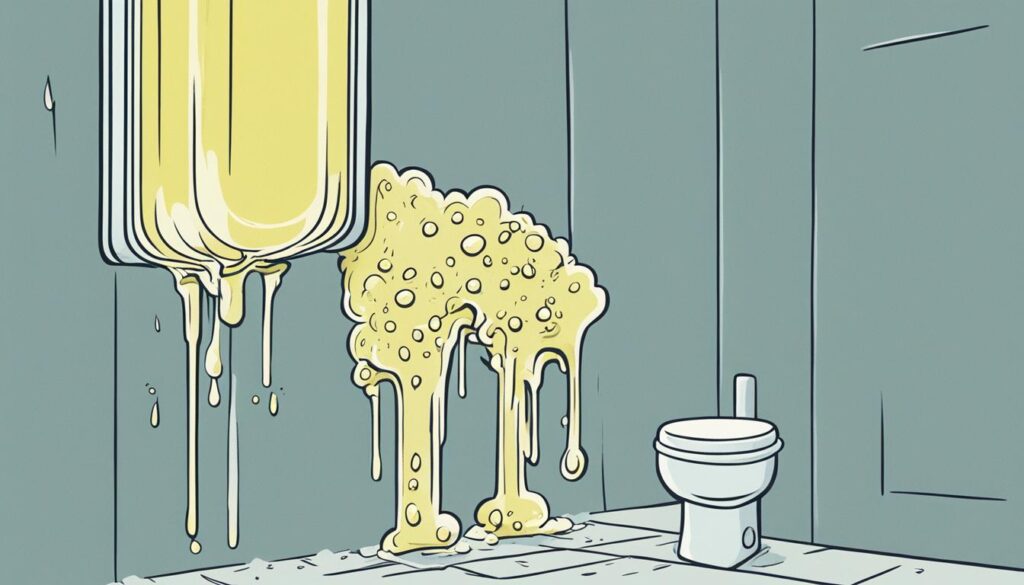
what causes kidney stones
Types of Kidney Stones
Kidney stones can happen when your urine has more substances like calcium, oxalate, and uric acid than it can dissolve. These substances can form into stones. The main types of kidney stones are:
- Calcium Stones: These are the most common type. They are made of calcium oxalate or calcium phosphate.
- Struvite Stones: These stones come from urinary tract infections. They are made of a mineral called struvite.
- Uric Acid Stones: These stones form when there’s too much uric acid in your urine. This can happen if you eat a lot of animal proteins.
- Cystine Stones: These stones are due to a genetic disorder called cystinuria. It causes too much cystine in the urine.
Knowing about the different types of kidney stones is key. It helps in treating and preventing them. If you often get kidney stones, talk to your healthcare provider. They can help figure out what type you get and how to stop it from happening again.
Risk Factors for Kidney Stones
Kidney stones are painful and can come back. Knowing what increases your risk is key to preventing them. Here are some main factors that make you more likely to get kidney stones:
- Family or personal history of kidney stones – If you or a family member has had them, you’re more likely to get them too.
- Dehydration – Not drinking enough water can lead to minerals and crystals building up, forming stones.
- Certain diets high in protein, sodium, and sugar – Eating a lot of these can make your urine more likely to form stones.
- Obesity – Being overweight or obese can increase your risk of getting kidney stones.
- Digestive diseases and surgeries – Some health issues or surgeries can change how your body handles nutrients, making stones more likely.
Other health conditions, some medicines, and supplements can also lead to kidney stones. Knowing what puts you at risk helps you take steps to prevent them. This can make dealing with this painful issue less likely.
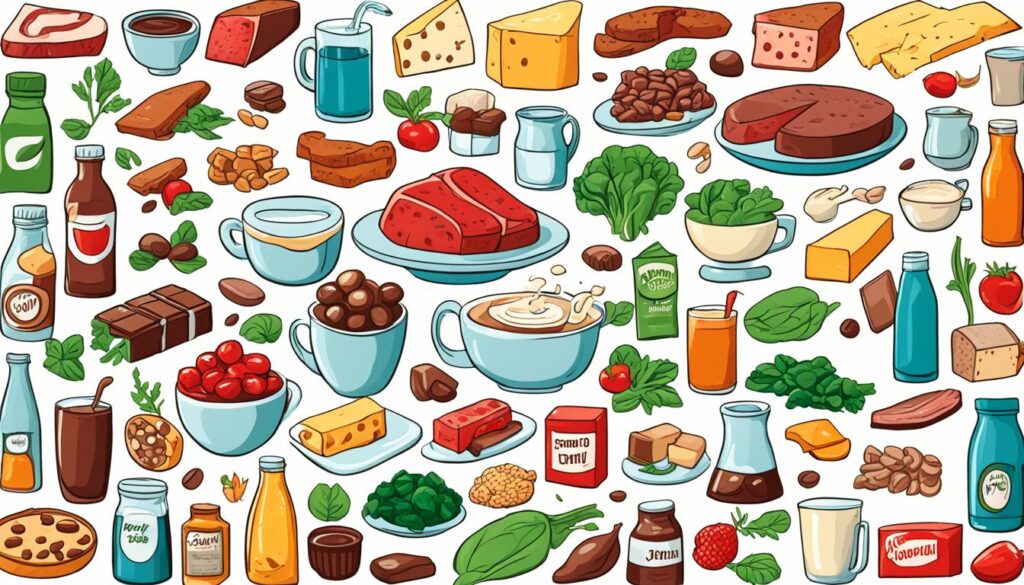
Diet and Kidney Stones
Your diet is key to preventing kidney stones. Making a few changes can lower your risk and keep your urinary system healthy. Let’s look at the main dietary factors to think about.
Fluid Intake
Drinking enough water is a top way to prevent kidney stones. Try to drink at least 3 liters (about 10 glasses) of water or other fluids daily. Drinking enough helps dilute your urine and remove substances that can cause stones.
Sodium Intake
Lowering sodium intake can help prevent kidney stones. This is because it reduces urine calcium and cystine levels, which are stone-forming substances. Try to keep sodium intake below 2,300 mg daily.
Calcium Intake
- It’s crucial to get the right amount of calcium to prevent kidney stones. Too little or too much can increase your risk.
- Go for 1,000-1,200 mg of calcium daily from foods like dairy, leafy greens, and fortified items.
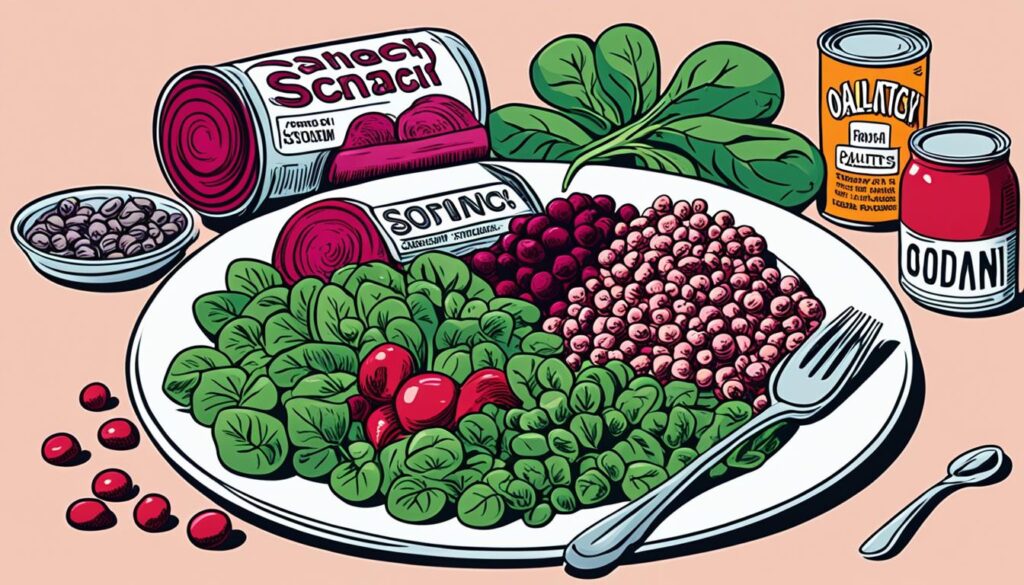
Focus on good fluid intake, cut down on sodium, and balance your calcium levels to lower kidney stone risk. A balanced diet is essential for a healthy urinary system.
Medical Conditions and Kidney Stones
Some medical conditions can make you more likely to get kidney stones. These medical conditions that cause kidney stones mess with the balance of substances in your urinary system. This can lead to the formation of painful crystals. Knowing about these diseases linked to kidney stones helps with prevention and treatment.
Renal tubular acidosis is one condition that affects how your kidneys handle acid levels. It can cause too much calcium and uric acid to build up. This increases the chance of getting kidney stones.
- Cystinuria is a genetic disorder that makes the amino acid cystine build up in urine. This leads to cystine stones.
- Hyperparathyroidism makes the parathyroid glands produce too much hormone. This can raise calcium levels in the body, making kidney stones more likely.
- Having repeated urinary tract infections (UTIs) can also raise your risk of getting kidney stones. The inflammation and changes in urine can help stones form.
Dealing with these conditions through proper treatment is key to preventing more kidney stones. Talk to your healthcare provider to find out what you need to do. They can help you keep your urinary system healthy.
Medications and Supplements
Some medications and supplements can lead to kidney stones. It’s important to know the risks to keep your kidneys healthy.
Vitamin C supplements can raise the risk of getting kidney stones if taken in large amounts. Calcium-based antacids for heartburn can also increase this risk.
Medicines for migraines, depression, and other issues can make you more likely to get kidney stones. Using laxatives too much can mess up the balance of fluids and minerals in your body, which might cause stones.
Drugs for HIV treatment can also be a risk. Always talk to your doctor about any meds or supplements you’re on to see how they affect your kidney health.
- Vitamin C supplements
- Calcium-based antacids
- Migraine and depression medications
- Laxatives (when used excessively)
- Antiretroviral drugs for HIV treatment
Knowing which meds and supplements can cause kidney stones helps you protect your kidneys. This can lower the chance of getting these painful stones.
Preventing Recurrent Kidney Stones
If you’ve had kidney stones, you know how crucial it is to stop them from coming back. Luckily, there are ways to lower your risk of getting more stones.
Dietary Changes
Changing what you eat is a key way to stop kidney stones from happening again. Drinking plenty of water helps clear out your system and makes your urine less likely to form stones. Cutting down on sodium is also good, as it can lower calcium levels in your urine.
Getting the right amount of calcium is also important. It can help stop oxalate from getting into your bloodstream, where it could cause stones.
Medications for Prevention
Your doctor might suggest medicines to prevent more kidney stones. Thiazide diuretics can lower calcium in your urine. Potassium citrate can increase citrate levels, making it harder for stones to form. Allopurinol is for people with high uric acid levels, and cystine-binding drugs help with cystine stones.
It’s important to work with your doctor to find the best prevention plan for you. By changing your diet and considering medicines, you can lower your risk of getting more kidney stones.
Conclusion
Kidney stones can be a big problem, but you can prevent them by knowing the causes and risk factors. Keeping hydrated, eating right, and managing health conditions are key to lowering your risk of getting kidney stones.
Working with your doctor can help you make a plan to keep an eye on your urinary system. Making changes to your diet, like drinking more water, eating less sodium and animal protein, and getting enough calcium, can really help prevent kidney stones.
Being proactive in preventing kidney stones is important. Keep an eye on your lifestyle, make smart food choices, and talk to your healthcare team often. With the right knowledge and steps, you can keep your urinary system healthy and avoid the trouble of kidney stones.
FAQ
What are kidney stones?
Kidney stones are hard deposits made of minerals and salts. They form inside your kidneys. They can be anywhere in your urinary tract, from kidneys to bladder.
What causes kidney stones to form?
Kidney stones form when urine becomes concentrated. This lets minerals crystallize and stick together. Diet, being overweight, certain health conditions, and some medicines can raise your risk.
What are the common symptoms of kidney stones?
Symptoms include sharp pain in the side and back. You might feel pain in the lower abdomen and groin. The pain comes in waves and can make urination painful.
Other symptoms are pink/red/brown urine, cloudy or foul-smelling urine, and a constant need to urinate. You might also have nausea, vomiting, fever, and chills.
When should I see a doctor for kidney stones?
See a doctor right away if you have severe pain, nausea/vomiting, fever/chills, or trouble passing urine. These could mean a serious kidney stone issue.
What are the main types of kidney stones?
The main types are calcium stones (calcium oxalate or calcium phosphate), struvite stones from infections, uric acid stones, and cystine stones from a hereditary disorder.
What factors increase the risk of developing kidney stones?
Your risk goes up if you have a family history or have had them before. Being dehydrated, eating certain foods, being overweight, and having certain health issues can also increase your risk.
Some medicines and supplements can make it more likely too.
How can I prevent recurring kidney stones?
To prevent more stones, you should change your diet. Drink more fluids, eat less sodium, and get the right amount of calcium. Your doctor might also prescribe medicines based on your stones and risk factors.
Source Links

This article is medically reviewed by Dr. Chandril Chugh, Board-Certified Neurologist, providing expert insights and reliable health information.
Dr. Chandril Chugh is a U.S.-trained neurologist with over a decade of experience. Known for his compassionate care, he specializes in treating neurological conditions such as migraines, epilepsy, and Parkinson’s disease. Dr. Chugh is highly regarded for his patient-centered approach and dedication to providing personalized care.





